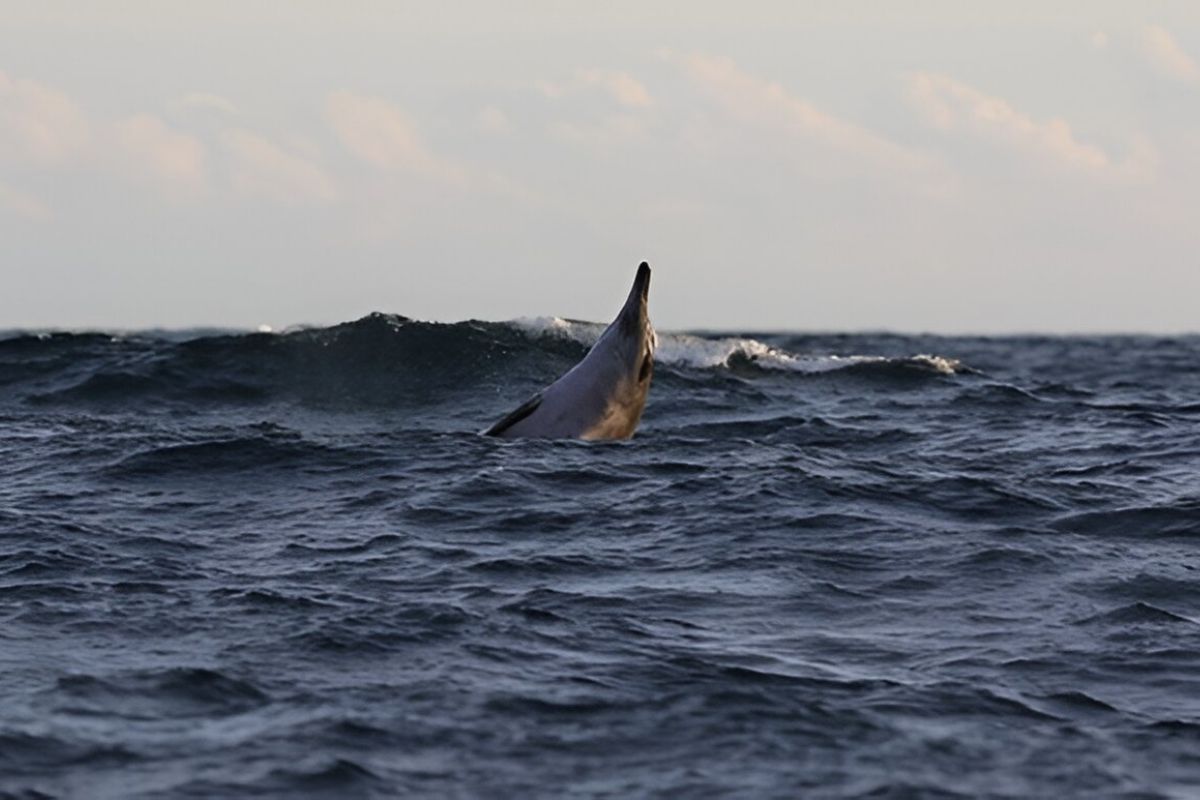Even in the farthest reaches of the ocean, beaked whales face numerous threats from human activities. Despite living in remote areas away from cities and ports, these deep-sea dwellers are still affected by 14 different human-made dangers. These threats range from military sonar and hunting to climate change, plastic pollution, and oil spills.
Dr. Laura Feyrer, a marine biologist and adjunct faculty member at Dalhousie University, conducted a review of existing literature on the human threats to beaked whales. These whales, including northern bottlenose, Cuvier’s, Sowerby’s, and True’s whales found in Canadian waters, inhabit deep dives, remote habitats, and have cryptic biology.
Her recent findings, published in Royal Society Open Science, highlight how even one of the least encountered mammals on Earth cannot evade human pressures.
“The widespread influence of human activities, especially plastics affecting a vast number of species, indicates that virtually no part of the world’s oceans remains unaffected by human actions,” she explains.
“The situation with beaked whales serves as a warning, suggesting that no species is immune to human impacts, regardless of their remoteness or rarity.”
Altered habitats
Among the threats investigated, climate change, entanglement, and plastic pollution emerged as the most prevalent documented risks for beaked whale species. Climate change, for instance, is dramatically reshaping marine ecosystems, leading to rising sea levels, heightened ocean acidification, more frequent marine heatwaves, and declining sea ice.
“These changes carry significant implications for the migration, growth, reproduction, and survival of marine creatures, including cetaceans,” the paper notes.
The researchers categorized the severity of each threat as serious, intermediate, moderate, or unknown in cases where the exact impact on beaked whales remains unclear. Nonetheless, the study underscores that all considered threats likely exert some level of influence.
Military sonar was identified as a serious threat, as it has been associated with fatal mass strandings of at least eight beaked whale species globally. Stranded animals displayed symptoms akin to decompression sickness, likely resulting from altered diving behavior and a heightened “fight or flight” response to sonar exposure, according to the paper.
Mystery of Beaked Whales
Dr. Feyrer emphasizes the necessity for targeted, area-specific research to address uncertainties surrounding the diverse impacts on beaked whales. These cetaceans remain enigmatic due to their remote habitats, with at least 24 different species, eight of which are classified as “data deficient” by the International Union for the Conservation of Nature.
In Canada, beaked whales face threats such as military sonar during naval exercises, entanglement in fishing gear, collisions with ships, and noise pollution from oil and gas exploration.
“Understanding the population sizes, health, and behavior of beaked whales is crucial for developing effective conservation strategies,” Dr. Feyrer explains. “This study highlights the importance of monitoring and regulating human activities that affect beaked whales in Canadian waters and globally.”
Keep Reading
Part 1: Cloudburst in Ganderbal’s Padabal village & unfulfilled promises
India braces for intense 2024 monsoon amid recent deadly weather trends
Support us to keep independent environmental journalism alive in India.
Follow Ground Report on X, Instagram and Facebook for environmental and underreported stories from the margins. Give us feedback on our email id greport2018@gmail.com.
Don’t forget to Subscribe to our weekly newsletter, Join our community on WhatsApp, and Follow our YouTube Channel for video stories.









